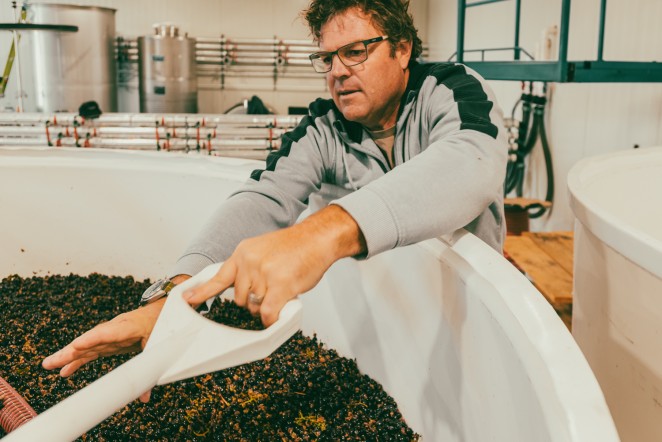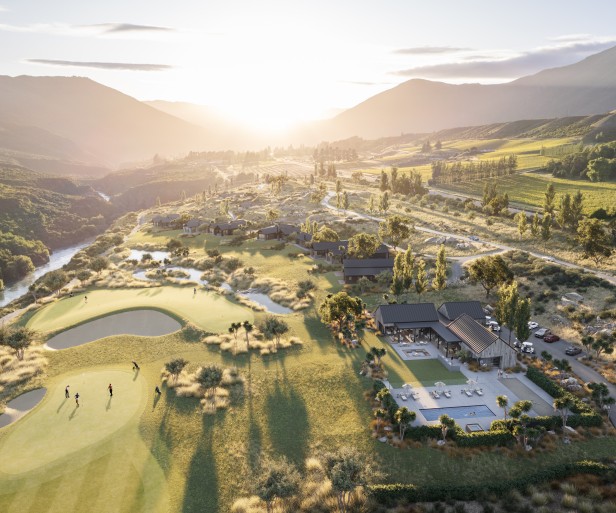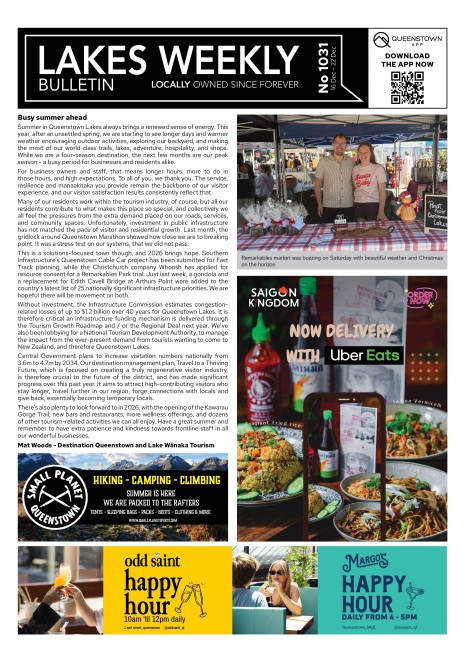El Nino delivers bumper harvest ...no ‘whining’ this season

El Nino weather conditions in the past six months have left Central Otago winemakers smiling with good yields and excellent quality grapes, in anticipation of some delicious wines to come.
James Dicey, of Bannockburn’s Dicey Wines, says the extremely dry growing conditions and above average warmth over summer were perfectly timed. The unseasonal cold temperatures in March then slowed down the maturity of the grapes. “We harvested when we wanted to, not just because of good sugar,” Dicey says. “If the grapes arrive later, you get more phenomenal flavours.”
He estimated the region’s yield this season is above average – between 10,000 and 12,000 tonnes, with the first pinot noir released in June 2025. Winegrowers around the region are happy with the harvest.
“Everything’s gone well, but the proof’s in the pudding when the wines are in the bottle. The vintage is only half done when you’ve picked the grapes.”
Valli Wines winemaker Jen Parr says the shorter autumn across their sites at Pisa, Bendigo, Bannockburn and Gibbston meant the harvest was more compacted. “We’ve had an usually dry, hot summer and an unseasonably cold March, then a rain event just before Anzac Day which kept some of us on our toes,” she says. “What we’d normally pick in five weeks, we picked in three which put pressure on us. It wasn’t a coasting vintage. We’ve been paying attention to the weather.”
The erratic weather though hasn’t altered the flavour. “We’re looking for a fine fragrant balance in our wines that will endure a couple of decades,” Parr says.
She’s excited about the delicious flavours already, especially at their Gibbston vineyard where the vines have produced “a lovely, highly perfumed, savoury red fruit with a delicious spice”. The tannin profile may be interesting though with the dry start and cool finish to the season.
Growing at a premium level, Valli drops fruit to maintain top quality wines and Parr says they harvest 176 tonnes – their third largest in their Cromwell winery. Valli, owned by renowned, award-winning winemaker Grant Taylor who’s now focusing on his vineyard in Waitaki, also makes Wild Earth’s pinot noir. Valli sells around 85% of its wine in New Zealand with export sales on the rise.
Central Otago’s legendary winegrowing pioneer Alan Brady is still at it having just commissioned his third winery, this one near Alexandra just months out from his 88th birthday. Brady was among the few pioneers planting his first vines at Gibbston in 1984, Ann Pinckney the very first to grow Central Otago grapes at Speargrass Flat, and Rolfe Mills in Wanaka.
Brady says viticulture in the region has developed hugely since then. His Wild Irishman label established in 2006 was meant to be a retirement hobby but has grown into a leading boutique producer. He and co-owner, Irish winemaker Brian Shaw, now make wine from six vineyards – three at Gibbston, one in Bannockburn and two in the Alexandra Basin. They’re focused on reflecting the wonderful diversity of soils and climate in Central Otago’s sub regions. “Even right across the road from each other they express themselves differently,” Brady says.
He’s been through unseasonal El Nino vintages before and says viticulture is about observation and experience. “If you listen to Nature, she is a very good teacher.”
For Brady who founded Gibbston Valley Wines, then Mount Edward which he sold in 2004, he’s seen a noticeable warming in our climate, but he doesn’t believe it’s had the same dramatic effect in Central Otago as in Europe. “Germany was once considered a cool climate winegrowing region but they’re now beginning to plant other varieties. Burgundy, our sister wine region, has had some noticeable changes with some very hot seasons and more frosts.” Climate warming has been evident for the past 20 years here with seasons less predictable. “There’s no particular rainy season anymore."
He says Central Otago is fortunate not to have had the disastrous weather events, severe frost damage and diseases that have affected vineyards elsewhere in New Zealand. “We seem to scoot around the edges and manage most events staying relatively disease free,” Brady says. “We just wait and see what Mother Nature delivers. We’re very blessed with our climate so she’s been pretty good to us in this region.”
With Brian Shaw now at the helm, Wild Irishman has had a great season and while each site has ripened differently the grapes are excellent quality.










